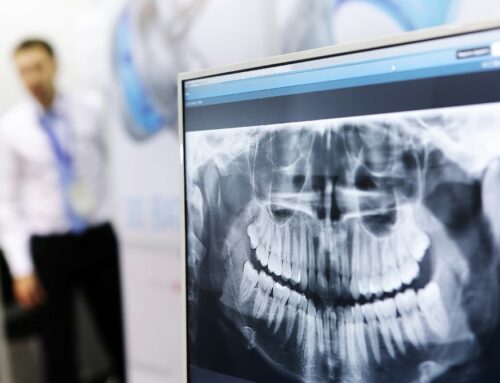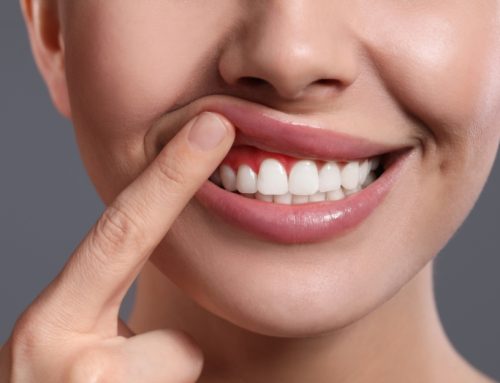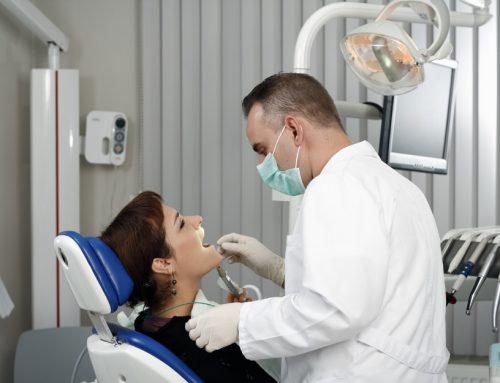The TMJ is the shortened name given to the temporomandibular joint which connects your jaw to the rest of your skull.
It’s quite unique in its anatomy and different in several key ways to every other joint in your body.
Take a second to carefully move your jaw around.
Think about all of the different directions and motions that you are able to do with your jaw.
Up and down, forwards and backwards, and side to side.
The forwards and backwards motion in particular is what makes the TMJ unique.
Unlike a regular ball and socket joint (like your hip, for example), the TMJ also has a slide function that allows you to extend and retract the lower jaw on demand. Try moving your lower jaw forwards and backwards to see for yourself.
No other joint in your body can do that.
So Why Do You Feel TMJ Pain?
Due to how unique the TMJ is and the wide range of motion it has, it’s not uncommon for people to experience occasional pain in the TMJ joint.
Typically, this can come in the form of a tightness or stiffness in the joint, which makes moving it painful and uncomfortable, therefore restricting your range of motion.
TMJ pain can also result in general aching pains that extend up to your ear and even occasional lock-jaw.
There are many different reasons why patients can experience TMJ pain and it can often be very difficult to pinpoint one exact cause.
Most commonly, genetics or arthritis can play a role here, and it’s also thought that those who routinely grind or clench their teeth are more likely to develop TMJ pain or discomfort at some point in their life.
How Can You Stop Or Alleviate TMJ Pain?
Since pinpointing the exact cause of TMJ pain is difficult, treating the root cause of the pain directly is not always an option.
Luckily, most patients will find that treating and controlling the symptoms of TMJ is enough to bring the condition to a manageable point, and in time, the right care and treatment can usually resolve TMJ pain completely.
Should You Visit A Dentist For TMJ Pain?

As we mentioned above, TMJ pain is usually only a temporary condition.
With the right treatment and pain management, it is entirely resolvable and need not be a long-term concern.
At Pier Dental Centre, we have helped countless patients to find relief from TMJ pain and discomfort, with the use of modern dental technology for fast, accurate diagnosis and effective treatment.
Is TMJ Pain A Dental Emergency?
If you are experiencing extreme pain in the jaw, or if your jaw is locked in place, you should seek an emergency dental appointment by calling us on 604-986-9161.
We always have same day emergency dental appointments available for those who require urgent dental assistance.
If your pain is more mild, you might first want to try out some of our home remedies for TMJ pain to see if any of these tips help to reduce your symptoms.
If these tips are not working for you or if your TMJ pain has been ongoing for more than a few days, making an appointment to speak to one of our specialist neuromuscular dentists here at Pier Dental Centre should be your next step.
Our trained neuromuscular specialists are experienced in treating persistent TMJ disorders by working with your surrounding muscles to reduce tension.
At Pier Dental Centre, our TMJ diagnosis and treatment options include modern dental technology with advanced jaw tracking equipment and ultra-low frequency Transcutaneous Electrical Neural Stimulation devices which can be used to force the metabolites and lactic acid away from the muscles and into the bloodstream. We also carry a regular supply of dental BOTOX which can be used to help reduce tension in the joint.
On rare occasions, TMJ surgery can sometimes be required as a last resort. For most TMJ patients we see here at Pier Dental Centre however, a professional diagnosis and treatment plan from one of our specialists is usually all that’s needed.
If you need emergency TMJ treatment, contact Pier Dental Centre today to make an appointment.






